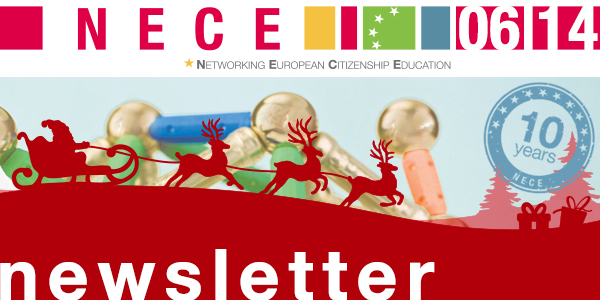| |
NECE Conference "1914-2014: Lessons from History? Citizenship Education and Conflict Management"
16-18 October 2014, Vienna (Austria)
Given the escalation of crises and warlike conflicts in 2014, this year’s conference focussed on the potentials and instruments of citizenship education for dealing with these new and often overwhelming challenges. By looking back to watershed events such as the First World War, NECE sought to span a bridge between the wars of the 20th century and the conflicts of the 21st. The celebrations surrounding the 10th anniversary of the NECE Initiative also made NECE 2014 an exceptional event. The conference offered great keynotes, lively debates, a number of very diverse workshops, a colourful project market and – as always – great people from more than 40 countries all over Europe. Although it offers the chance to network, meet new friends and see familiar faces, the NECE Conferences are above all about bringing together people from a wide range of backgrounds in order to share experiences and hands-on reports about the many challenges facing citizenship education today, both within Europe and outside its borders. To see the best of the many memorable impressions the most recent event left, take a look at our NECE 2014 film. And if you’d like to read into some of the highlights, you can find the scripts of keynote speeches from Jan-Werner Müller (“Europe's twin dangers - Normative disintegration, normative disengagement”) and Aleida Assmann (“Reflections on 1914/2014 - A year of commemoration”) on eurozine.
For detailed information on the programme as well as workshop reports and thesis papers, head for the website of the NECE Conference 2014 and the NECE Blog.
More information about the NECE Conference 2015 is coming soon.
|
|
 |
| |
Focus Group “CLEAR”
The CLEAR project was able to make a fitting contribution to the overarching NECE conference theme. Lise Kvande from the Norwegian University of Science and Technology (NTNU) and Claudia Lenz from the EWC presented CLEAR’s methodology in the workshop "The power of concepts in war and peace" on 17 October 2014. You can find a brief report on the workshop here.
The CLEAR Focus Group Meeting was also held on 18 October 2014 in Vienna following the NECE Conference. At it, project members presented the activities related to CLEAR that they have pursued since the previous meeting last June in Berlin. The new CLEAR website was discussed, and the group agreed to further improve its design and content in due course. The venue and date of the next CLEAR project meeting will be announced soon. If you’d like to keep abreast of the latest developments, you can follow CLEAR on twitter.
|
|
 |
| |
Focus Group “Exchange between Europe and North Africa”:
The Focus Group met on 18-19 October 2014 following the 2014 NECE Conference. Participants from North Africa and Europe seized the chance to debate and exchange ideas on the role of conflicts and conflict solutions in citizenship education, citizenship education and Web 2.0 activities, as well as on the group’s forthcoming bilingual publication on Citizenship Education in Europe and North Africa.
To find out more about the “Exchange between Europe and North Africa” Focus Group activities, please visit its website.
|
|
| |
Focus Group “Hard-to-reach learners and youth”
The Focus Group’s third meeting began with a welcome and introductory session, followed by a round where participants discussed individual perceptions of the current situation for ‘hard-to-reach learners and youth’ in their respective countries and in Europe generally. Many of the assessments that emerged were pessimistic, although they also revealed a number of good starting points for critical dialogue on the meaning and scope of ‘hard-to-reach learners’ in times of crisis. Later in the meeting, the project teams presented the progress they have made in areas like academic research in the field, practical tools, networking possibilities and removing barriers. New ideas that were introduced during the session inspired lively conversation. The members of the Focus Group additionally discussed and planned the future timeline for 2015, and collected ideas on the best way to publish the group’s final results. To help in the selection of suitable topics and ideas for publication, all members of the “Hard-to-reach learners and youth” Focus Group have been requested to send in abstracts. The group’s next meeting will be held in September/October 2015 in Greece. For further information please contact focusgroup-hardtoreach@lab-concepts.de.
|
|
| |
Join the Network for European Education and Diversity (NEED)
Diversity and migration are impacting on education across Europe. Education professionals need to share ideas to help us provide the best education for future cohesion across our changing communities. Cultural and linguistic diversity in the classroom can enhance learning for all, but ensuring equal access and combating fear, discrimination and xenophobia are increasing challenges for all educators.
The Focus Group “Hard-to-reach learners and youth” launched the Network for European Education and Diversity (NEED) at the NECE Conference in Vienna in October 2014. The NEED initiative will be continued and working within the framework of the NECE Focus Group. Help us to a build a new network to share best practice, improve international cooperation and facilitate new, creative support opportunities for people working in the broad field of education and diversity. Share and any relevant aspects of your work with others through this new database. There is no charge or expectation of major commitment; only a willingness to be in contact with others who are working towards the same aims for more cohesion and less inequality and racism across Europe. Please distribute this information to as many of your contacts as possible. The value of this network will depend upon the diversity of professionals willing to join. Find out more about the NEED initiative here and join the network.
|
|
 |
| |
EURO-MED COOPERATIONS |
|
 |
| |
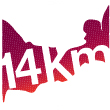 |
ReliXchange! – A German-Egyptian Transformation Partnership Project
ReliXchange is an interreligious youth exchange programme between Germany and Egypt. Together with Egyptian partner organisation New Horizon Association for Social Development, the German non-profit organisation “14km” is helping to foster intercultural exchange and cooperation between Europe and North Africa while contributing to international and national interreligious dialogue and understanding.
Based in Berlin, 14km is named after the geographic distance between Africa and Europe at their closest point, and it denotes a lot more. The name also stands for how little separates the two continents, and seeks to convey the message that we are neighbours and should feel and act as such, even if – or precisely because – some people still find that difficult. One fundamental part of the activities is the concept of involving different participants and organisations from Europe, North Africa and the Middle East. All of 14km’s events and projects are intercultural. Rather than focussing on differences, the NGO concentrates on shared values and the synergies that can be created together.
To find out more about ReliXchange, visit 14km.org.
|
|
|
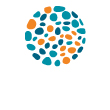 |
The Anna Lindh Foundation’s 2014 Report on Intercultural Trends and Social Change in the Euro-Mediterranean Region
Published every three years, this report combines a wide-ranging analysis by a network of intercultural experts with a Gallup Public Opinion Poll that gives voice to thousands of people across Europe and the Southern and Eastern Mediterranean region. The report is intended as a tool for debate and action, both within the Foundation and among decision-makers and opinion-setters, and could even be used as a road map for the implementation of social and political public initiatives aimed at building a common project for the Mediterranean.
Click here for an overview of the findings of the Anna Lindh Report 2014. You can also read the full report here, or download a PDF version of it here. For more background information on the making of the Report, head to the Anna Lindh Foundation website.
|
|
|
| |
GOOD PRACTICE: IDEAS & EXAMPLES |
|
 |
| |
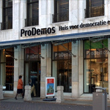 |
ProDemos: Workshop on the Rule of Law in Problematic City Areas
Demonstrations in The Hague and other cities in the Netherlands last summer showed that mistrust is on the rise in certain areas, while conflict between inhabitants is growing more prevalent. Global phenomena like the war in Syria and the appearance of the ‘IS’ group have become issues in Dutch (migrant) communities. Some parents are afraid that their children might one day decide to take part in wars in the Middle East, and opinions on conflicts abroad are threatening to split consensus in the neighbourhoods of large Dutch cities. NGOs involved in these areas have now asked ProDemos to offer residents workshops on the ‘Rule of Law’. The idea is to allow people to learn – in a playful manner – that laws and regulations are necessary, because they help make life more predictable for everyone. The primary message is that the rule of law is what creates space for people of different ethnicities, religions and opinions to live together in a peaceful way. Trainers will seek to communicate that the state is not just there to enforce obedience to the regulations, but that the rule of law also protects individuals from arbitrary actions on the part of the state. These workshops aren’t aimed at the de-radicalization of young people, but they could offer a strong tool for ‘immunizing’ citizens against agitating for one side or against another.
For more information, please visit ProDemos.
|
|
| |
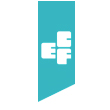 |
Remixing Europe: Unveiling Migrant Imagery in European Media
The Doc Next Network publication “REMIXING EUROPE”, which was produced within the framework of Remapping Europe – A Remix Project, takes a close look at how migrants are portrayed in Europe’s media. The investigative and artistic project explores tools and concepts for remixing media as a method to re-examine, re-investigate and re-consider prevailing imagery involving migrants in European societies. “REMIXING EUROPE” presents four individual case studies of recent media incidents, which provide starting points for an analysis of country-specific, cultural and historical contexts that influence public perception of migrants and migration.
Find more information here.
|
|
| |
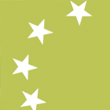 |
Blog: Ideas on Europe
‘Ideas on Europe’ is a free blog hosting service that provides an independent space for informed analysis, comment and debate. Created by the academic association for contemporary European Studies (UACES), it hosts blogs by organisations and individuals actively engaged in European issues. Blogging on ‘Ideas on Europe’ can help you to make an impact beyond your organisation and area of expertise. With a diverse community of bloggers and a wide-ranging readership from all corners of the globe, you can quickly disseminate and receive feedback on new research or ideas. Posts by blog authors are tweeted to over 7,000 followers via @ideasoneurope, sent to 2,500 e-newsletter subscribers and featured on the UACES homepage.
Read more here.
|
|
 |
| |
POLITICS & POLICIES & CITIZENSHIP EDUCATION |
|
 |
| |
The European Commission’s Dialogue with Civil Society in Europe
After the new citizenship education programme came into effect, the implementation of the EU’s ‘Structured Dialogue with Civil Society’ is now binding (Article 10 of the Regulation). According to it, organisations and institutions active throughout Europe that have received operating grants in previous years, as well as other European organisations, are invited by the Citizens’ Policy Unit at the European Commission’s Communications DG to take part twice a year in discussions related to the “Europe for Citizens” programme. At the first meeting on 10 June 2014, participants discussed the results of the European elections, the citizenship programme’s future annual themes of special significance, and other topics.
You can find the report with further information here.
|
|
| |
Erasmus+ Call and Programme Guide for 2015
The Erasmus+ Programme Guide for the 2015 General Call for Proposals was published in English on 6 October 2014 as an integral part of the 2015 Erasmus+ Call for Proposals. Organisations and institutions seeking funding within the framework of this call must comply with the conditions for participation and funding expressed in the Guide.
For further details, head here.
|
|
| |
Talks on the New Narrative for Europe: “The mind and body of Europe”
A year and a half ago, former EU Commission President José Manuel Barroso and the European Parliament threw open a dialogue on what the European Union’s updated New Narratives could look like in an era of globalisation. At nearly 30 events in 17 different Member States, groups of artists, philosophers, authors, scientists and other participants took part in the discussions. The results of those talks have now been collected and documented in the book “The mind and body of Europe: A New Narrative”. The new publication was launched at the Centre for Fine Arts in Brussels.
You can find more information here, or watch the webcast of the event online.
|
|
| |
Setting up a German-Greek Youth Foundation
The German government is planning to establish a new German-Greek Youth Foundation modelled along the lines of German-French and German-Polish counterparts. A declaration of intent to that effect was signed by Greek Ambassador to Germany Panayotis Zografos and German Youth Affairs Minister Manuela Schwesig in Berlin on 12 September 2014. The new Youth Foundation is aimed at encouraging interaction between young people from the two countries through shared activities, including theatre or music projects, sporting events, work at memorials, environmental projects, educational exchange or work-related internships.
For more information, click here.
|
|
| |
European Social Surveys: Europeans’ Understandings and Evaluations of Democracy
A new survey has shown that democracy within the EU is backed strongly by the general population within the bloc, even though citizens were much more critical of many common political practices in the EU. In particular, those asked criticized the lack of procedures allowing participation through direct democracy. Despite those negative assessments, it was clear that democratic ideals have many adherents throughout Europe. In 24 of the 29 countries surveyed, average respondents thought it was very important “to live in a country that is governed democratically”. The European Social Survey is a biennial survey of social attitudes and behaviour that has been carried out in up to 36 European countries since 2001.
You can find further information on it here.
|
|
 |
| |
CALLS |
|
 |
| |
Call for Proposals: €4,000 for Stop-TTIP Campaigns – Focus on Local Civil Society Activists
The European platform CitizensforEurope supports grassroots campaigns aimed at linking the self-organised European Citizens Initiative (sECI) Stop-TTIP with political decision-makers at the local level. Campaign organisers can apply for a maximum of €4,000. The support is managed by the Berlin-based association Citizens For Europe e.V. Anyone who is concerned about the negative impact the TTIP could potentially cause democracy, the environment or social justice in Europe can apply. CitizensforEurope is especially looking for grassroots initiatives that are local and theme-driven. Groups from Southern and Eastern Europe are especially encouraged to propose campaigns. The deadline for submissions is 15 December 2014.
To find out more, click here.
|
|
 |
| |
Call for Papers: “Periphery”
The peer-reviewed online journal “Middle East – Topics & Arguments” (META) is calling for submissions to its next issue. Entitled “Periphery”, it will focus on spatial differentiation and the processes of social and political change in the MENA Region. META is looking for conceptual articles and case studies from a broad array of disciplines – including sociology, political science, anthropology, geography, economics, history, cultural studies and media studies – that are aimed at shedding light on ‘peripheries’ within a MENA context. The journal encourages authors to send in papers from both synchronic and diachronic perspectives that look at different scales of peripheries: global, regional, national, metropolitan centres and urban agglomerations, as well as that of urban centres and rural areas. Deadline for submissions is 31 January 2015.
For more detailed information, please visit the META website.
|
|
 |
| |
Call for Papers: "Organising and migration(s): moving borders, enacting transformative spatialities, creating mobile commons"
The 9th International Conference in Critical Management Studies, which will take place from 8-10 July 2015 at the University of Leicester (UK), focuses on migrants' organisations and the creation of safe places for fostering mobility, settlements and border-crossings through varying spatialities – theories and practices of organising as the act of moving borders/moving borders as an act of creation. Any contribution that aims to transform, subvert and rethink the boundaries between different disciplines is warmly welcome!
Submission deadline is 31 January 2015.
You can find out more on content and criteria here. Please see the list of sub-streams for criteria and other details of each of our 22 sub-streams.
|
|
 |
| |
Call for Papers: Turkish Migration Conference 2015 at Charles University in Prague
The 2015 Turkish Migration Conference is an international research event dedicated to the study of migration to, from, in and through Turkey. Its topics will cover a wide range of multidisciplinary areas, including the dynamics and patterns of human mobility, legal and regulatory frameworks, labour market outcomes, education and human capital, brain-drain and brain-circulation, short-term migrations, migrant integration, diasporas, culture, media and politics, health and well-being of migrants, internal and international migration nexus, migrant experiences, the cost of migration, legal frameworks, conflicts, non-movers and attitudes and policies towards migration & migrants. To reflect the multifaceted and multidisciplinary nature and scope of the field, the theme of this year’s conference is to be “Economics, Identities and Geographies”. The submission deadline for abstracts and session proposals is 1 February 2015.
More information on the conference is available here.
|
|
 |
| |
EVENTS |
|
 |
| |
CEMR Conference: "Citizen in my City - Citizen in Europe"
15-16 December 2014, Rome (Italy)
The Council of European Municipalities and Regions (CEMR) organises the 2014 European Conference on Citizenship and Twinning. In a world that is increasingly connected – culturally, politically and technologically – active citizen involvement in local communities has grown increasingly common. The governments closest to communities are always those of municipalities, cities or regions, and these by their very nature have the potential to pave the way for more citizen participation in society, better integration and greater equality.
For more information, check out the programme and registration page.
|
|
 |
| |
International Conference: Historical Culture in Divided Societies
19-20 December 2014, Nicosia (Cyprus)
What forms does historical culture take in circumstances of rupture and division? Who are the agents, both academic and non-academic, that influence or even determine the ways people in post-conflict societies imagine their past and relate to it? To explore these and similar issues, the International Commission for the History and Theory of Historiography (ICHTH) and the Association for Historical Dialogue and Research (AHDR) are co-organising a three-day conference exploring both theoretical approaches to the dominant historical culture in divided societies and a range of public history cultural products.
Read more at Mladiinfo and the Association for Historical Dialogue and Research.
|
|
 |
| |
5th International Conference on Holocaust Research
25-27 February 2015, Berlin (Germany)
Entitled "Afterwards – an experiential history of the Holocaust 1945-1949", this conference will focus on the years immediately following World War II, which have rarely received public attention even though they played a decisive role in shaping perceptions of the mass crimes perpetrated under National Socialism. Organised by the German Federal Agency for Civic Education (bpb) in cooperation with the European University of Flensburg and Humboldt University of Berlin, the event aims to contribute to exchange between scientific research and practical civic education.
You can find further information on the conference website or view the programme. If you are interested in attending, please register here.
|
|
 |
| |
Conference: “World Regions Compared: Polity, Politics and Policy”
25-27 February 2015, Hamburg (Germany)
The "Rise of Africa", the "Euro crisis", the "Arab Spring" – buzzwords that draw attention to current developments in different parts of the world. The DVPW Comparative Political Science Section Conference in February 2015 will be dedicated to the political dynamics within and between world regions, and its goal is to look at current political science research on political institutions and processes – including the relevant actors and political decisions – in every part of the globe. The conference will examine the patterns, causes and effects of regional similarities and differences in every field of comparative political science.
More information on the event will be posted to this website in early December 2014 after the release of the conference programme.
|
|
 |
| |
6th Nordic Conference on Adult Education and Learning: “Adult Education and the Planetary Condition”
25-28 March 2015, Tampere, Finland
Both the theory and practice of adult education have developed significantly in response to societal and economic change within the context of nation-states. Researchers, practitioners and policymakers from the field of adult education are now witnessing the consequences of globalisation, not only as increased interaction and mobility across different kinds of borders, but also as financial and economic, social and environmental crises on a global scale. Increasingly, the local challenges of adulthood are also planetary. The loose umbrella of the sixth biannual Nordic Conference on Adult Education and Learning is the place and function of adult education in a planetary perspective. It invites researchers to discuss their topics and results in the tension-field that lies between the local and the global. Contributions relating adult education to social, economic, ecological and cultural issues are especially welcome, but the conference is open to anyone interested in encounters and dialogue within the Nordic adult education community.
For more information, visit the conference website.
|
|
| |
| |
|
|
 |
| |
You can find more current publications on citizenship education in Europe at the NECE website.
You receive the NECE Newsletter because you subscribed and have confirmed that you wish to receive information about the NECE-Networking European Citizenship Education initiative. If you would like to unsubscribe, please click here.
The NECE Newsletter is published regularly and distributed via e-mail. It is available to anyone on the www.nece.eu website. The newsletter is published by the German Federal Agency for Civic Education (bpb), which is responsible for its content according to definitions laid down by the German Telemedia Act.
Further contact information:
German Federal Agency for Civic Education
Adenauerallee 86
53113 Bonn (Germany
www.bpb.de / www.nece.eu
If you have any questions please e-mail to: nece@lab-concepts.de
The NECE newsletter contains information about current professional debates in the field of citizenship education in Europe. We hope it will serve as an important tool of communication and co-operation among stakeholders and institutions in Europe actively engaged in citizenship education. Our aim is to increase transparency for national actors in this field and for the growing NECE network.
|
|
 |
|
